Vitamins & Minerals
Whatever diet we follow, a healthy and varied diet can give us most of the nutrients we need to support our body's needs, from concentration, digestion and a healthy heart to strengthening our bones and muscles, building our immunity, energy, and much more. However it can be difficult to get all the necessary nutrients if you follow a certain diet type, or you're simply on the move all the time, so supplements are often necessary to give your body the vitamins and minerals it needs.
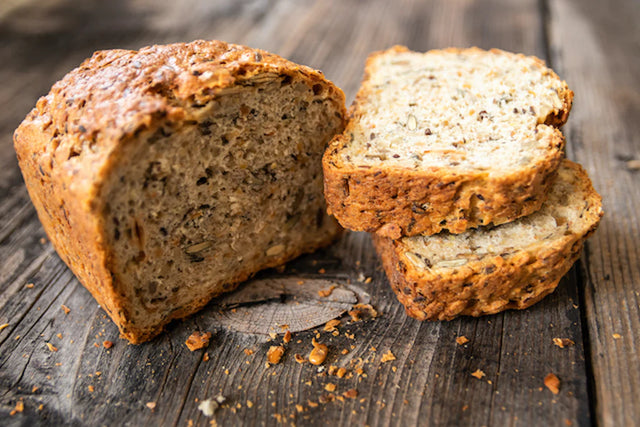
B Vitamins
B vitamins include vitamins B1, B2, B3, B5 and B6 which are all required for releasing energy from food. Low levels of B vitamins can lead to feeling tired, depressed or irritable.
Pork, chicken, turkey, lamb and beef contain B vitamins, and plant foods that contain B vitamins include whole grains, bread, fortified cereals, soya beans, nuts, and some fruits and vegetables. B vitamins are water soluble and the body lacks the ability to store them, so any surplus intake your body doesn't use is excreted in the urine.
Discover UltraEnergy, our high Strength B Vitamin Complex.
Vitamin B12
Vitamin B12 is found in almost all foods of animal origin so is one of the most common nutrient deficiencies among vegans. Green plants do not provide Vitamin B12 and although it can be synthesized by some algae and bacteria, the bioavailability of Vitamin B12 from plant-based dietary forms is disputed.
Vitamin B12 is essential for growth and division of your body's cells and the forming of red blood cells in your body. It helps keep your nervous system healthy and plays an important role in releasing energy from your food. A deficiency of B12 can cause tiredness, fatigue, and anaemia, and is a particular risk for vegans. The Vegan Society recommend those on a vegan diet take a B12 supplement, such as a Vegan Vitamin B12, or include B12 fortified non-dairy milk alternatives, fortified breakfast cereal or yeast extract in your diet.
Discover our Vegan Vitamin B12 or learn more in our blog 5 signs you may be low in Vitamin B12.
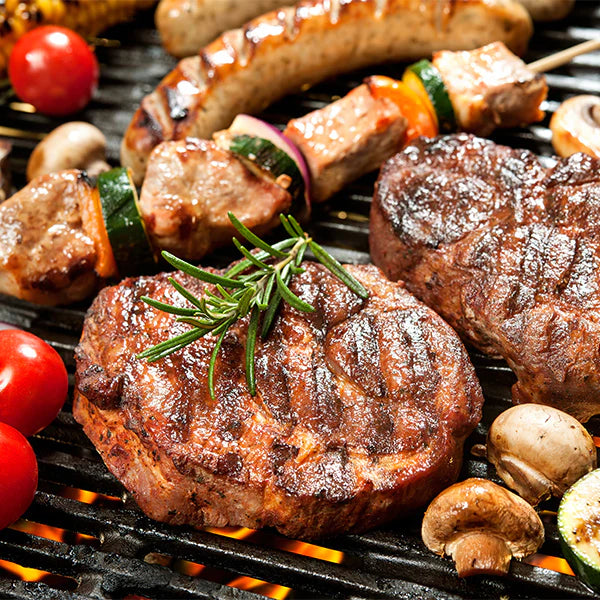

Vitamin D
Vitamin D isn't actually a vitamin, it is a hormone which is made in the skin when exposed to UVB sunlight, which gives it the name 'The Sunshine Vitamin'. The UK Government recommends adults should take a daily Vitamin D supplement (in particular over the winter months) because it helps your body absorb calcium and phosphate from your diet, both of which are essential for healthy bones. It also benefits the heart and immune system and studies show it can help maintain a balanced mood.
Vitamin D is only found in a small number of foods, mainly of animal origin, such as oily fish, meat and egg yolks. Some foods such as breakfast cereals and plant milk alternatives may be fortified with Vitamin D, and some mushrooms are grown under UV light to enhance their Vitamin D content.
The most effective source of Vitamin D is D3 from vegan-friendly plant sources such as lichen, or animal sources such as lanolin or sheep's wool. D2 is an alternative source from plants such as mushrooms grown in UV light, but it is less effective at increasing vitamin D levels in the blood. A Vegan Vitamin D3 from lichen is considered the more effective form. Vitamin D is fat-soluble so absorption is improved when you take it with food containing some healthy fats.
Learn more in our blog How do I know if I'm deficient in Vitamin D or discover our Vegan Vitamin D3.
Vitamin C
Vitamin C has a huge range of benefits including protecting cells and supporting the immune system, keeping your skin healthy and glowing, blood vessels and bones healthy and helping any wounds to heal. Vitamin C also improves your body's Iron intake from plant foods which is especially important for those who don't eat meat because Iron from plants is much harder for the body to absorb. If you're taking an Iron supplement, look for a gentle Iron and that also contains Vitamin C.
The best food sources of Vitamin C are fruits and veg, particularly citrus fruits, berries, peppers and dark green leafy vegetables. It is water-soluble so you need to include these foods in your diet each day as the body can't store it. Vitamin C is also one of the most unstable vitamins and easily destroyed during cooking, so raw, fresh fruits and vegetables are the best source, and when cooking, use only a small amount of water.
Discover our Vegan Daily Multi-Vitamin with Vitamin C.
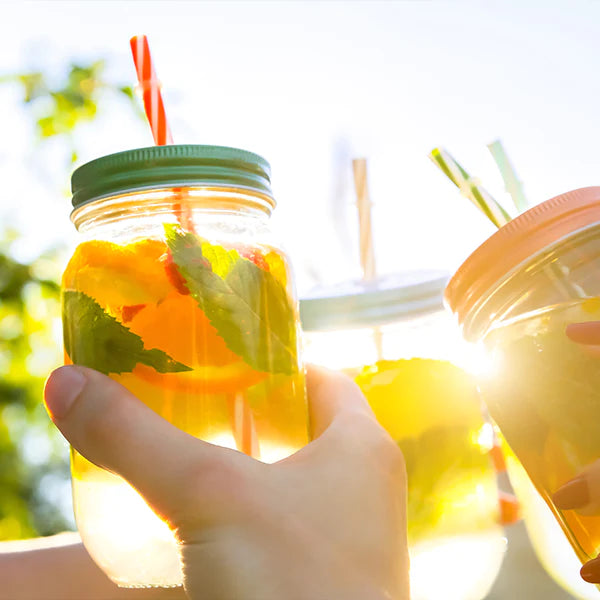
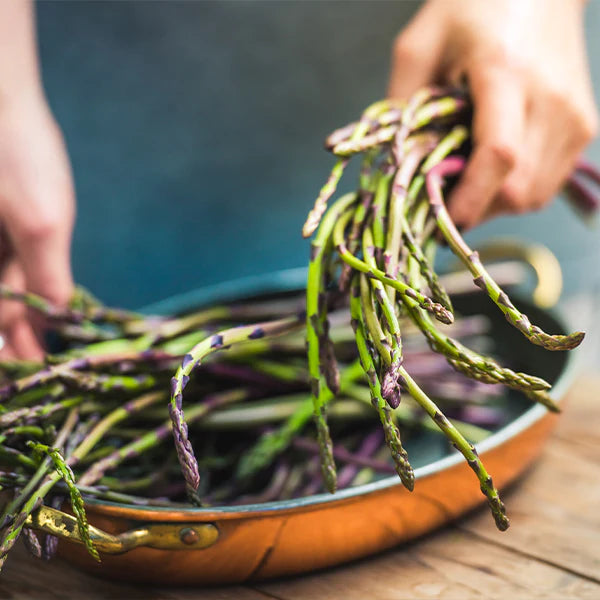
Vitamin K
Vitamin K is a less well-known vitamin but plays an important role in your heart health and bone health, and normal blood clotting. There are two forms: Vitamin K1 (phylloquinone) found in plant foods and Vitamin K2 (menaquinone) found in animal and fermented foods, which is generally more easily absorbed by your body. A good Daily Multi-Vitamin should contain the daily recommended level of Vitamin K2.
The best dietary sources are green leafy vegetables such as green cabbage, broccoli, Brussels sprouts and spinach, while tea also contains vitamin K. It is a fat-soluble vitamin, so any Vitamin K your body doesn't need immediately is stored in the liver for future use. Some Vitamin K can be made by bacteria in the large intestine, and there is evidence that long-term use of antibiotics may contribute to lower levels of Vitamin K.
Discover our Vegan Daily Multi-Vitamin with Vitamin K2.
Vitamin A
Vitamin A is essential for supporting good vision, especially in dim light. Yes, eating carrots can help you see in the dark! You may enjoy our blog 7 nutrients to support your eye health.
Vitamin A also supports your immune function and maintains healthy skin and mucus membranes such as the lining of the nose and urinary tract.
Vitamin A is found in foods of animal origin such as dairy, eggs and liver. However, it is also available from plant sources in the form of beta-carotene which the body converts into Vitamin A. The main sources of beta-carotene are yellow, red and green leafy vegetables such as carrots, squash, sweet potatoes, red peppers, spinach and kale. Yellow fruits such as mango, apricots and papaya are also good sources. Generally the more intense the colour of the fruit or vegetable, the more beta-carotene it will contain.
Discover our Screen Eyes formula for vision health or learn more in our blog 'Tips for better eye health'.
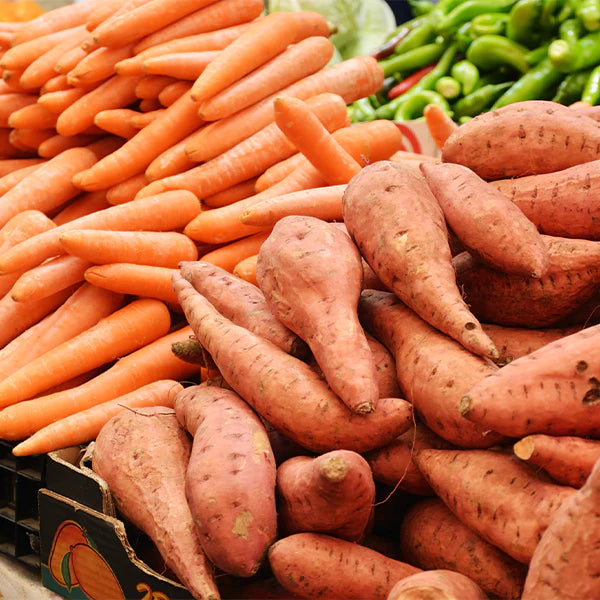

Iron
Iron is required by your body for making haemoglobin, the oxygen-carrying protein in red blood cells, so it is essential for a healthy immune system and maintaining your energy levels. Iron deficiency is a common cause of anaemia and feeling low on energy and is quite common for women with heavy periods. Learn more in our article: 'Why Iron is so important, particularly for women'.
There are two sources of Iron: haem iron found in foods of animal origin and non-haem iron found in plants. It is well known the most readily available food source of iron is red meat. Useful plant sources include beans, chickpeas and lentils; green leafy vegetables such as spinach, kale and watercress; dried apricots and nuts and seeds such as sesame (and tahini paste), pumpkin seeds and cashew nuts. Iron absorption from plant foods can be as little as 2-5% but including a source of Vitamin C with your meals can improve absorption by 10x. This is why Iron supplements containing Vitamin C are considered better.
Tea and coffee hinder iron absorption so it's best to avoid these with meals, or leave at least 30 minutes before or after a meal before you drink your brew. Soaking nuts and seeds or using sprouted seeds and grains also improves the absorption of iron from them.
Discover our Gentle Iron & Vitamin C.
Iodine
Iodine is needed for the production of thyroid hormones which maintain your body's metabolic rate (learn more in our blog: Best foods for thyroid health). Iodine is especially important during pregnancy as it is essential for the baby's brain development.
Most of the Iodine in the world is found in the oceans, so seafoods are a rich source, particularly white fish such as haddock and cod. Cow's milk is also a major source of Iodine. Seaweed is a very concentrated source of Iodine so eating it more than once a week is not recommended, especially during pregnancy as too much Iodine can cause issues with your thyroid (involved in making hormones involved in metabolism and growth, and for the development of a baby's brain during pregnancy). Plant milk alternatives are not commonly fortified with Iodine so anyone who avoids fish or dairy products could be at risk of Iodine deficiency, and a number of studies have shown Iodine deficiency in pregnant women.
Discover our Vegan Daily Multi-Vitamin with Iodine and 23 other essential nutrients.
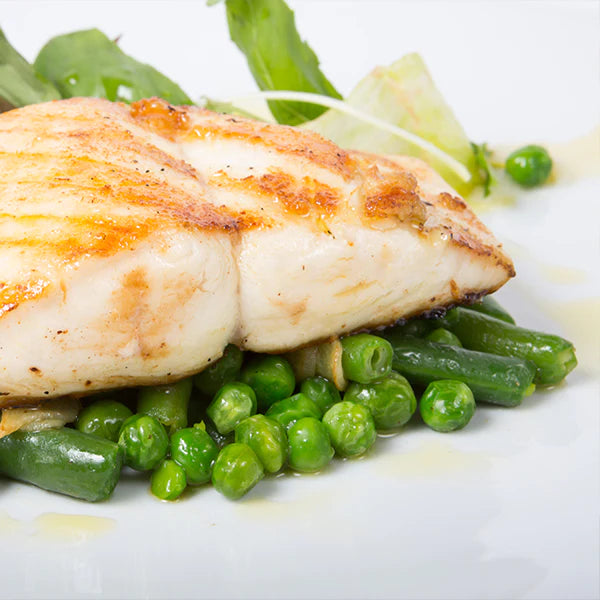
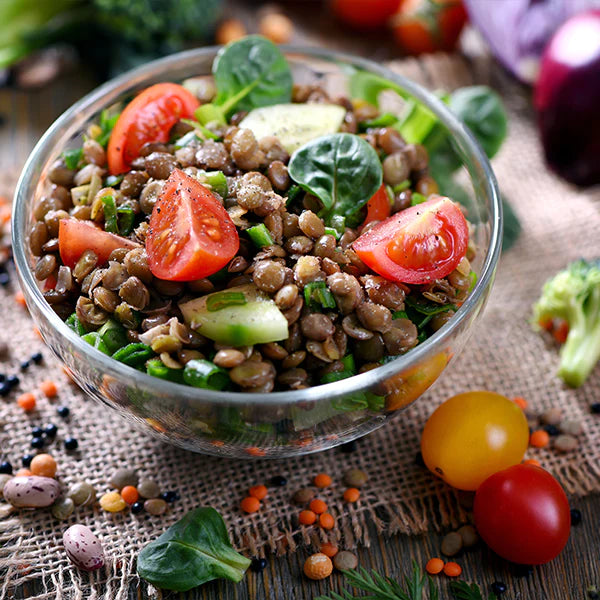
Zinc
Zinc is required for the normal function of your immune and reproductive systems. It is involved in various metabolic pathways and is essential for cell division and growth and repair of body tissue.
Zinc is found in many foods and is most easily absorbed from meat. It is also found in shellfish, dairy foods and whole grains, beans, lentils, nuts, seeds and eggs. Phytates (antioxidants) found in plant foods such as whole grains and legumes can reduce the body's absorption of Zinc, so it's important for vegetarians and vegans to eat a variety of plant foods to get adequate levels from their diet. A good quality Daily Multi-Vitamin should contain the recommended daily intake of Zinc.
Discover our Vegan Daily Multi-Vitamin with Zinc and 23 other essential nutrients.
Calcium
Calcium is crucial for strong bones and teeth. It is also vital for nerve transmission, blood clotting, muscle functions and helping your body digest food.
Milk, cheese and other dairy products provide about half of the calcium in a typical diet, so if you don't consume dairy products it is difficult to get adequate Calcium. Plant-milk alternatives and yogurts with added calcium can be helpful, and tofu can be a source if it is set using calcium chloride (E509) or calcium sulphate (E516), so check the label.
Small fish with small edible bones such as sardines, beans, chickpeas, sesame seeds, tahini (sesame paste), dried figs and almonds are useful sources of Calcium. Green leafy vegetables kale, spinach and broccoli contain good amounts of Calcium, however Calcium in these foods is bound to a compound called oxalate which limits its absorption. Bread is also an important source because most bread flour (not wholemeal) is fortified with calcium by law in the UK and many countries.
Discover our Bone & Muscle Support with Calcium.
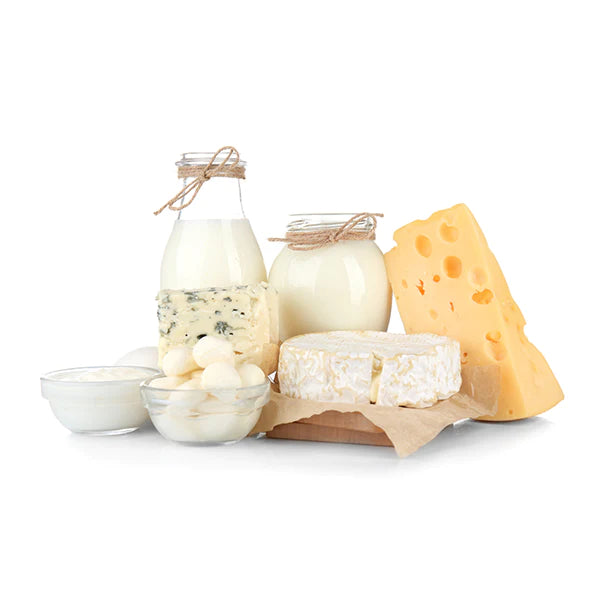

Magnesium
Magnesium is a 'Superhero' of minerals. It is an essential nutrient in all human tissues, particularly in your bones and is involved in obtaining energy from food, muscle and nerve function, and blood clotting.
Magnesium can be found in a range of foods including wholegrain cereals, nuts, legumes, dairy foods, meat and fish. Chlorophyll (the green pigment in plants) contains Magnesium so green leafy vegetables are a useful source.
Although deficiency in Magnesium is rare, it is quite common for people to have too low levels. Your body uses more Magnesium when you're stressed as it helps to soothe the nervous system, which is why it is often taken for managing stress and improving sleep.
Discover our clean, more absorbable Magnesium Citrate
Choline
Choline is a less commonly known nutrient but is essential for maintaining a healthy liver. Choline produces a substance required for removing cholesterol from your liver and can help prevent conditions such as fatty liver disease. Alcohol can increase the body's requirement for Choline, and a high alcohol intake can increase your risk of choline deficiency. Choline is also beneficial for heart health and is important during pregnancy as it is a key nutrient for developing babies.
Eggs, milk, meat and fish are the main dietary sources of Choline. It is also found in plants foods with soya products, quinoa and broccoli some of the best plant sources.
Discover our Choline 600mg.
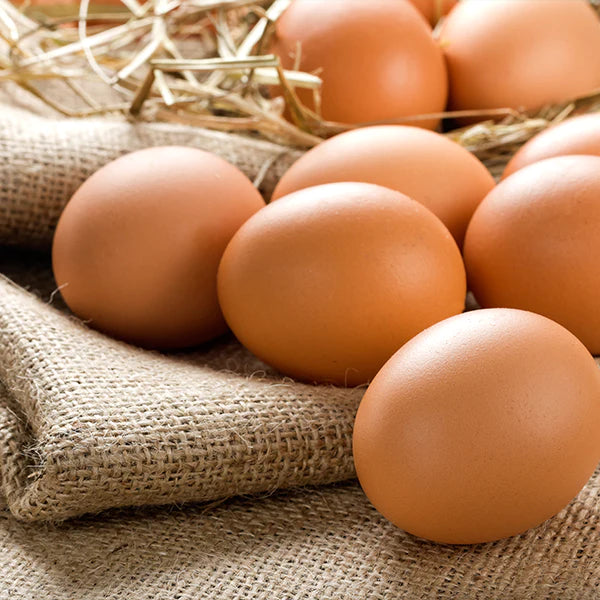
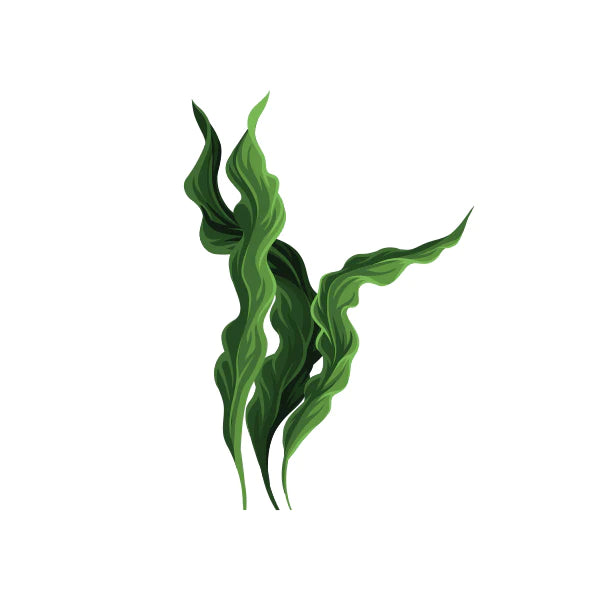
Spirulina
Spirulina is a blue-green algae packed with nutrients such as protein, B-vitamins, Copper and Iron. It also contains Vitamin B12 but not in a form that is absorbed easily. It can be available in supplement form and has been used in some food products such as snack bars and smoothies.
Spirulina contains many antioxidants that help protect the body's cells from damage. It is also thought to help reduce blood pressure and lower blood sugar levels, although scientific studies are ongoing to fully confirm this.
Turmeric
Turmeric is a herb that has been used as for thousands of years in Ayrvedic medicine, parimarily in Asia, for many conditions. Turmeric contains more than 300 bioactive compounds, including the most active compound, Curcumin. Curcumin is a powerful antioxidant that helps protect your body's cells from damage. It is the curcuminoids which are responsible for Turmeric's yellow colour.
Using Turmeric along with oil and black pepper increases its effectiveness because curcumin is fat soluble and the compound contained in black pepper, piperine, improves absorption.
Discover our vegan vitamins and supplements.
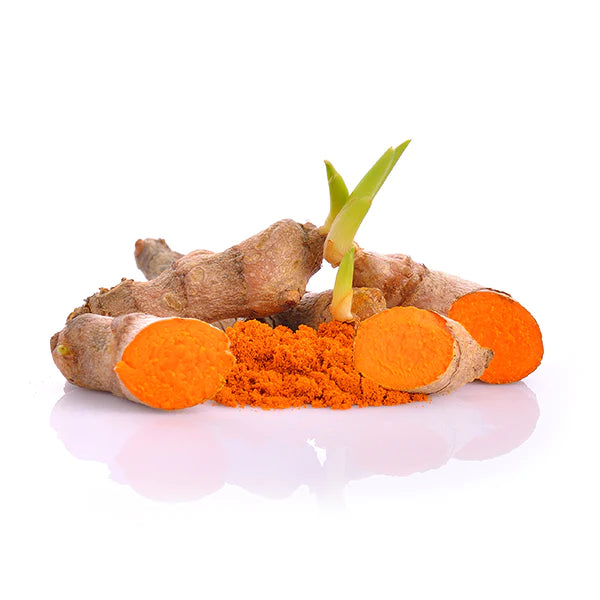
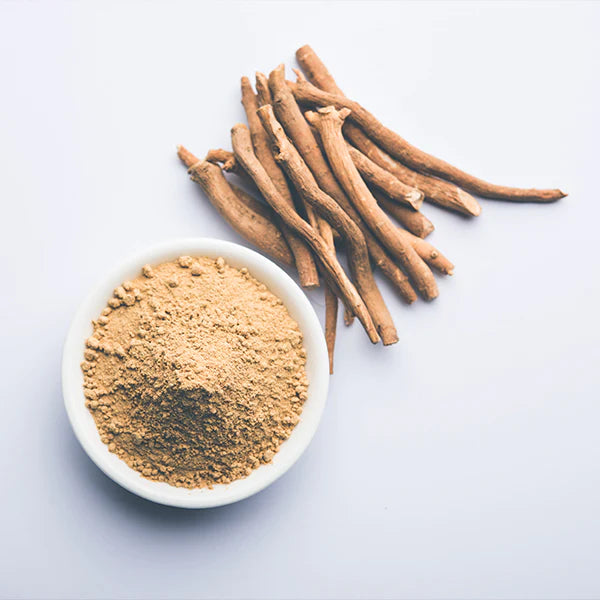
Ashwagandha
Ashwagandha is best known for its ability to help reduce stress and anxiety, and in helping promote a feeling of calm and wellbeing. It has been used as a medicinal herb for 3000 years. A small shrub with yellow flowers found in India and North Africa, extracts of the Ashwagandha plant's roots and leaves is thought to have benefits for brain function, reducing symptoms of depression, helping with sleep problems, boosting fertility in men, reducing blood sugar in people with diabetes and reducing inflammation.
Vitamin E
Vitamin E is a fat-soluble vitamin that exists in eight forms. Our body only uses one of these forms called alpha-tocopherol. Vitamin E acts as an antioxidant which prevents damage to cell membranes. It is also thought to play a role in maintaining healthy skin and eyes, keeping blood cells healthy and nerves functioning properly by helping them carry messages between the brain and the body. Evidence also suggests Vitamin E plays a role in supporting the immune system.
Deficiency is rare, as most people get the recommended amounts of Vitamin E from their diet. Foods containing high amounts of polyunsaturated fatty acids also tend to have good amounts of Vitamin E. Therefore, rich sources of Vitamin E include plant oils such as rapeseed (or vegetable oil), olive or sunflower oil, nuts and seeds, avocados, some oily fish and egg yolks. Whole grain cereals and products made with whole grain or wholemeal flour also provide Vitamin E.
Discover our Vegan Daily Multi-Vitamin including Vitamin E.
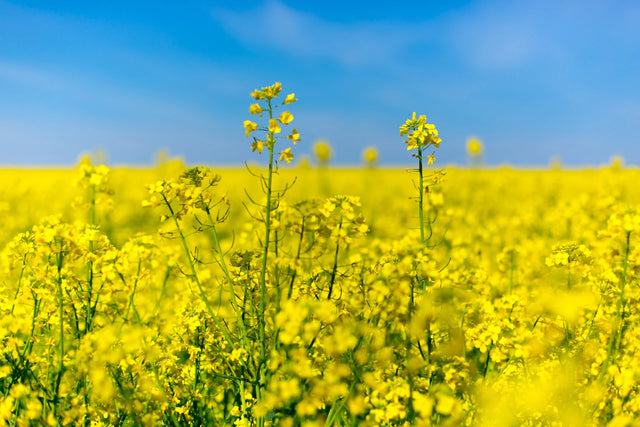
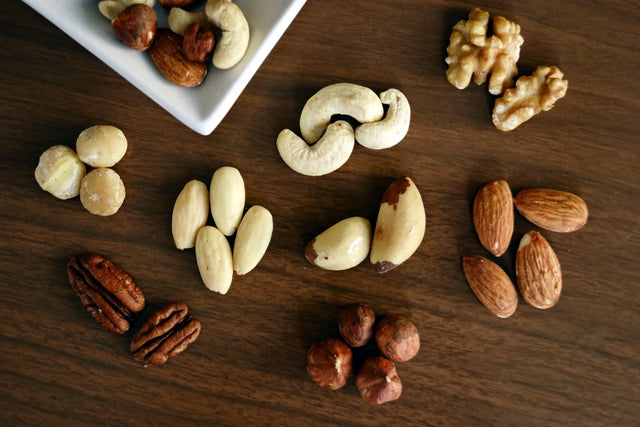
Selenium
Selenium is an important mineral for the immune system, reproduction and for preventing damage to cells and tissues. It also helps maintain healthy hair and nails and is necessary for the use of iodine in thyroid hormone function.
Good sources include fish, meat, eggs, bread and nuts – especially Brazil nuts. Just two Brazil nuts a day can meet your Selenium requirements. The Selenium in plant foods is dependent on the amount of selenium in the soil. In the UK, Selenium intakes have fallen due to the decline in imported selenium-rich wheat from North America and our increased use of European cereals which tend to be lower in Selenium.
Chromium
Chromium helps the body control the level of fat and cholesterol in the blood. It also increases the effectiveness of insulin, the hormone which controls glucose levels in the blood. Individuals with adequate Chromium in their diet have improved control over blood glucose.
Good sources of chromium include meat, nuts, brewer’s yeast, molasses and wholegrain cereals. Refining foods causes a significant reduction in Chromium, and so consuming a diet with many refined or highly processed foods can lead to a low intake of this mineral.
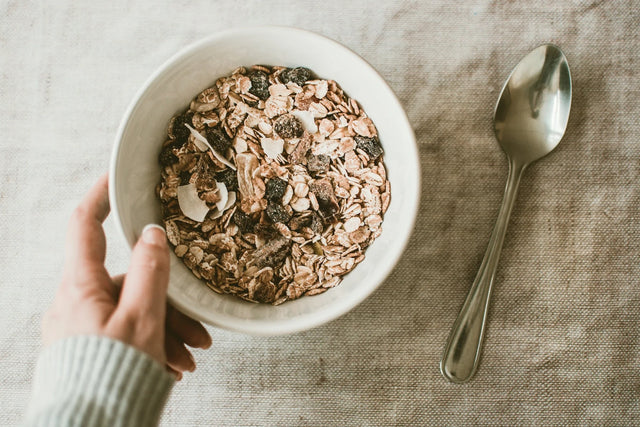
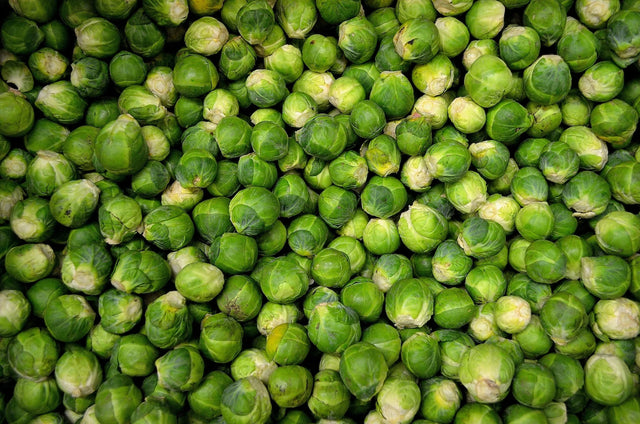
Folic Acid
Folic Acid is the synthetic form of Folate (or Vitamin B9) and common in supplements and fortified foods.
Folate helps form healthy blood cells and reduces the risk of neural tube birth defects, such as spina bifida, in unborn babies. That's why it is recommended that women who are pregnant, planning a pregnancy or could get pregnant, take a 400mcg Folic Acid supplement daily until they are 12 weeks pregnant.
Good sources of folate include broccoli, Brussels sprouts, peas, chickpeas, kidney beans and leafy green vegetables such as kale, spring greens, spinach and cabbage. Breakfast cereals are often fortified with folic acid. Because it’s a water-soluble vitamin, it’s important to eat folate-containing foods frequently as the body can’t store the vitamin.
Rhodiola
Rhodiola is a herb which has traditionally been used in Russia and Scandinavian countries for centuries to help reduce fatigue, anxiety and depression.
The root of the Rhodiola plant has adaptogens, which are natural substances considered to help the body manage stress. Consuming adaptogens during stressful periods is thought to increase the body’s resistance to stress and help us cope better with stressful situations.
Evidence suggests Rhodiola may have a beneficial effect of on fatigue levels, brain function and mood. Consult with your healthcare provider before taking new supplements if you’re already on medication for depression or anxiety.
Discover our Stay Calm.

















